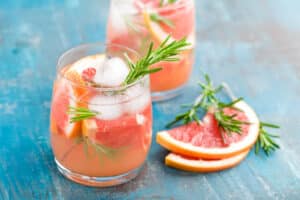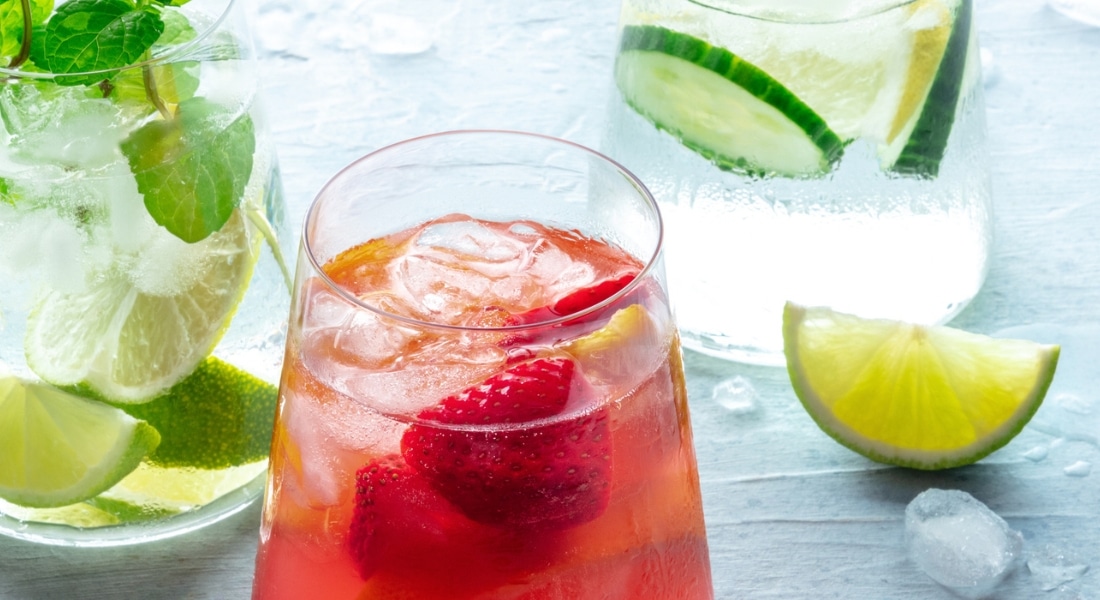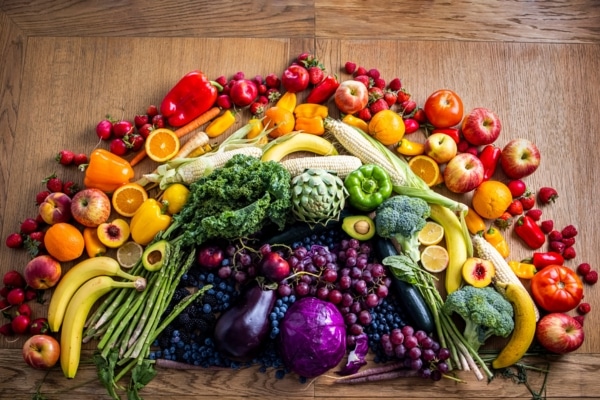Cutting back on alcohol has become a year-round pursuit for some, and health experts consider that a big win. But you’re no loser if your resolution for a Dry January is already all wet.
“The first two weeks of the year are usually pretty hard,” says Ashwini Mehta, DO, transplant hepatologist on the medical staff at Methodist Dallas Medical Center. “A lot of people say, ‘I’m not sleeping well, and I need my glass of alcohol to help me sleep’, but it takes about two weeks for your body to adjust to being alcohol-free.”
Keep in mind that alcohol is an addictive substance, and breaking a habit is hard to do. It’s also important to pay special attention to your body because alcohol tends to affect us all in different ways.
“There are different things that you can do to keep your mind occupied and help you realize that your body doesn’t miss alcohol unless there’s nothing else to do,” Dr. Mehta says.
Dr. Mehta talks about the benefits of abstaining from alcohol, from weight loss to lower blood pressure.

Alcohol consumption can impact blood pressure, and its effects vary depending on the amount and frequency of drinking.
WHAT ARE THE BENEFITS?
For moderate to heavy drinkers, abstaining from alcohol, even for a month, improves mood, energy levels and sleep quality, and can even help with weight loss.
“Giving your body that 30-day break can be really beneficial for you in the long run,” Dr. Mehta says. “Research shows that drinkers who abstained from alcohol for a month had reduced blood pressure issues, reduced cardiovascular issues, and memory impairment was less common.”
Patients young and old can reap the rewards because sobriety also reduces liver fat, blood sugar, and cancer-related proteins in the blood.
“We’re seeing younger and younger people coming in with alcohol-related liver injury,” Dr. Mehta says. “Nationwide several transplant programs are seeing a much younger generation with alcohol-related liver failure.”

Women have less water weight than men, so alcohol affects them differently.
DIFFERENT FOR WOMEN
Also, women in search of stress relief have been drinking more, both during and after the pandemic. Unfortunately, women have less water weight to dilute alcohol’s toxic effects and less alcohol dehydrogenase, an enzyme in the liver that helps break down alcohol.
“One alcoholic beverage in a woman is probably twice as much as it would be for a man, as far as the toxicity is concerned.” Dr. Mehta says.
This difference between men and women has to do with the amount of water in our bodies. Even if a man and a woman drink the same amount of alcohol, the alcohol content in the woman is actually much higher.

Men have more enzymes in their livers to break down alcohol, but they, too, will benefit from cutting back.
Another reason for this has to do with the alcohol detoxifying enzymes in the liver and stomach.
“Those are the two places where alcohol is really broken down,” says Dr. Mehta. “Men have more detoxifying enzymes, which means that alcohol tends to have a more harmful effect on women, particularly those aged 30 to 60.”
For those drinkers hoping to cut back, mocktails can serve as a suitable alternative without the health concerns. Even a 30-day break, a so-called “dry month,” can be beneficial in the moment and in the long run.

Adding nutrients to your nonalcoholic beverage can make it even healthier, what’s called a “functional mocktail.”
INGREDIENTS AND RECIPES
A mocktail is a nonalcoholic mixed beverage that contains flavorful ingredients meant to replace the alcohol in cocktails.
Creating mocktails at home offers the opportunity to enhance a social event or gathering without feeling the need to consume.
Here are a few mocktail recipes to explore, including the old standby Shirley Temple, strawberry daiquiris with limeade in place of rum, and punch that substitutes lemon-lime soda for champagne.

Mocktails can be tricky for anyone suffering from alcoholism because they could trigger their addiction.
MOCKTAILS ARE NOT FOR EVERYONE
For those struggling with alcoholism, mocktails won’t solve the underlying problems that lead to binge drinking.
“As a liver doctor, I treat alcoholism like it’s high blood pressure or diabetes or cancer,” Dr. Mehta says. “Treating it often involves digging deeper into the root cause of a person’s drinking.”
Anyone who suffers from alcoholism may want to seek counseling and steer clear of nonalcoholic beverages that resemble cocktails.
“At the Liver Institute, we help promote a happier and healthier physical and mental well-being,” she says. “Counseling can do amazing things for people who drink because of underlying anxiety or depression.”






